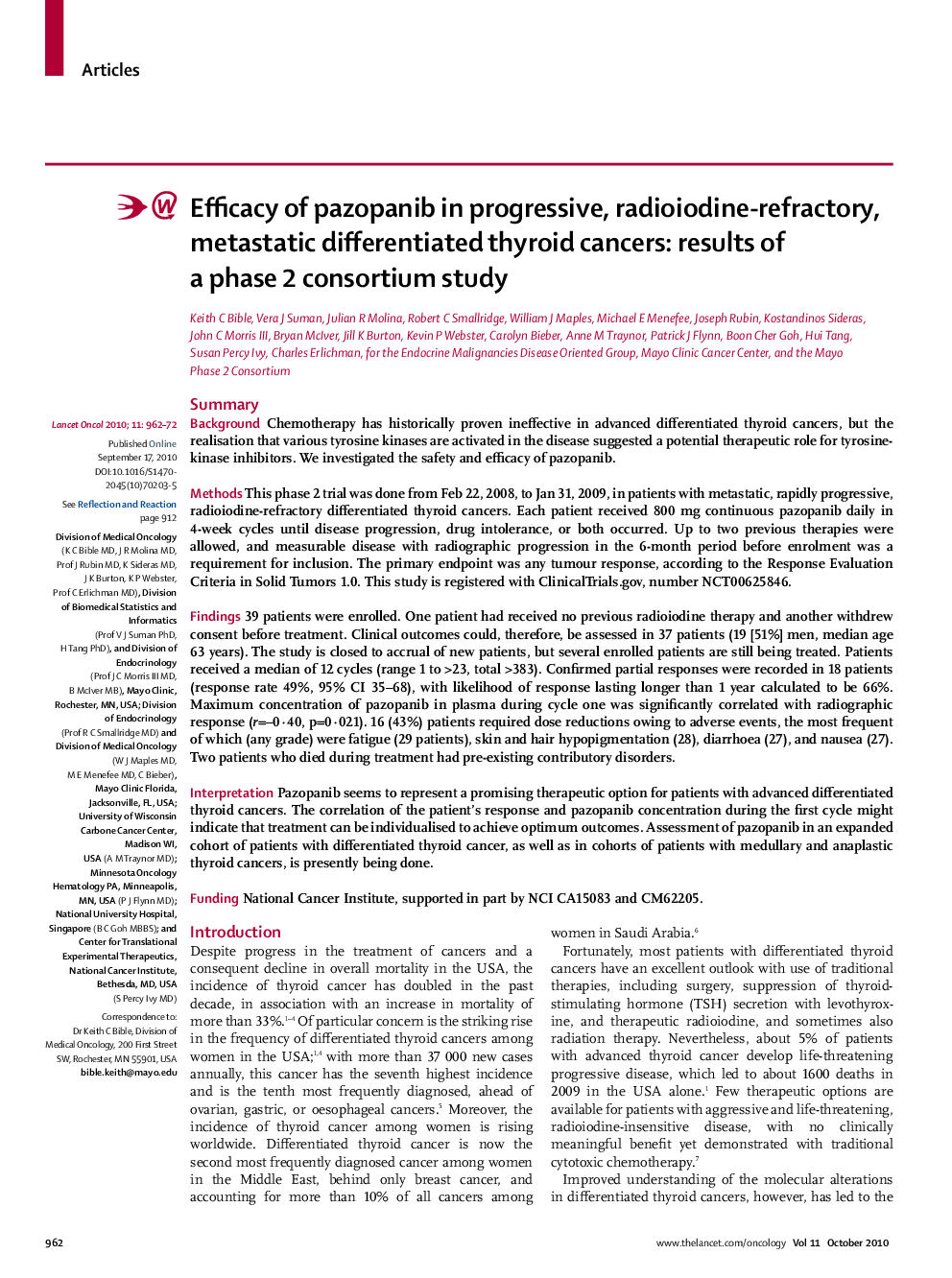| Article ID | Journal | Published Year | Pages | File Type |
|---|---|---|---|---|
| 3994982 | The Lancet Oncology | 2010 | 11 Pages |
SummaryBackgroundChemotherapy has historically proven ineffective in advanced differentiated thyroid cancers, but the realisation that various tyrosine kinases are activated in the disease suggested a potential therapeutic role for tyrosine-kinase inhibitors. We investigated the safety and efficacy of pazopanib.MethodsThis phase 2 trial was done from Feb 22, 2008, to Jan 31, 2009, in patients with metastatic, rapidly progressive, radioiodine-refractory differentiated thyroid cancers. Each patient received 800 mg continuous pazopanib daily in 4-week cycles until disease progression, drug intolerance, or both occurred. Up to two previous therapies were allowed, and measurable disease with radiographic progression in the 6-month period before enrolment was a requirement for inclusion. The primary endpoint was any tumour response, according to the Response Evaluation Criteria in Solid Tumors 1.0. This study is registered with ClinicalTrials.gov, number NCT00625846.Findings39 patients were enrolled. One patient had received no previous radioiodine therapy and another withdrew consent before treatment. Clinical outcomes could, therefore, be assessed in 37 patients (19 [51%] men, median age 63 years). The study is closed to accrual of new patients, but several enrolled patients are still being treated. Patients received a median of 12 cycles (range 1 to >23, total >383). Confirmed partial responses were recorded in 18 patients (response rate 49%, 95% CI 35–68), with likelihood of response lasting longer than 1 year calculated to be 66%. Maximum concentration of pazopanib in plasma during cycle one was significantly correlated with radiographic response (r=−0·40, p=0·021). 16 (43%) patients required dose reductions owing to adverse events, the most frequent of which (any grade) were fatigue (29 patients), skin and hair hypopigmentation (28), diarrhoea (27), and nausea (27). Two patients who died during treatment had pre-existing contributory disorders.InterpretationPazopanib seems to represent a promising therapeutic option for patients with advanced differentiated thyroid cancers. The correlation of the patient's response and pazopanib concentration during the first cycle might indicate that treatment can be individualised to achieve optimum outcomes. Assessment of pazopanib in an expanded cohort of patients with differentiated thyroid cancer, as well as in cohorts of patients with medullary and anaplastic thyroid cancers, is presently being done.FundingNational Cancer Institute, supported in part by NCI CA15083 and CM62205.
